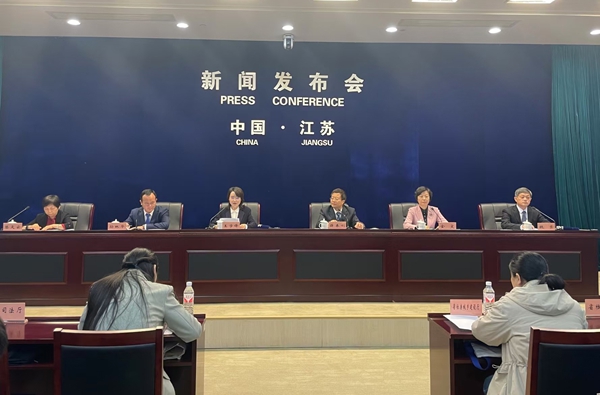Archives regulation meant to preserve memories for urban development

The newly revised regulation on urban construction archives management will come into effect in Jiangsu Province on November 1, according to a press conference held by the provincial government on October 30.
Urban construction archives play an important role in preserving city memory and heritage. As of the end of 2023, Jiangsu’s archive institutions at various levels housed 15 million volumes of paper records and approximately 7 million photographic records.
For example, some archives document the transformation of narrow and muddy paths into wide and smooth roads, and shantytowns into livable communities. From old photographs to written materials, these archives offer a tangible connection between people and the city.
The Suzhou Urban Construction Museum, opened in 2022, is the first professional museum of its kind in the country, showcasing the city’s development from the Spring and Autumn Period (770-476 B.C.) to the present day. Exhibits include the Suzhou Municipal Monthly from 1929, architectural drawings from the Republican era, and floor plans of Suzhou Railway Station and the new Suzhou Museum.
In Taizhou, a dedicated space of nearly 100 square meters showcases a collection of urban construction archives, including old maps, photographs, historical documents, and structural components. Notable exhibits include a Dharani pillar from the Tang Dynasty (618-907), inscribed wall bricks from the Song Dynasty (960-1279), brick carvings from the Ming Dynasty (1368-1644), roof tiles from the Qing Dynasty (1644-1911), an old map of the Republican era, and 11 glass aerial survey maps from the 1960s.
Construction archives played a crucial role in the restoration of the Sutra Library at Sun Yat-sen Mausoleum. Original drawings provided by the Nanjing Urban Construction Archives aided in the restoration of this 1930s building, which had suffered from issues such as roof lichen, leaks, and cracked glass tiles.
Similarly, the archives provided over 480 volumes of documents related to urban planning, architectural design, and municipal engineering to support the construction of the Nanjing Metro Line 5, which passes through 183 cultural relic protection units. These documents helped assess the impact of construction on buildings, streamlining the process and saving costs.
Jin Wen, deputy director of the provincial Department of Housing and Urban-Rural Development, emphasized the importance of organizing, researching, and developing archives to better serve social and economic development. Archives provide valuable insights for disaster relief, urban renewal, underground pipeline projects, and cultural protection. They also facilitate public access to information on real estate transactions, leasing, renovation, and decoration, said Jin.
Jiangsu's efforts in urban construction archive management are leading nationally in terms of its institutional development and standard-setting. According to the revised regulation, Jiangsu will continue to enhance the collection, preservation, and utilization of archives, contributing to the social governance and urban livability.